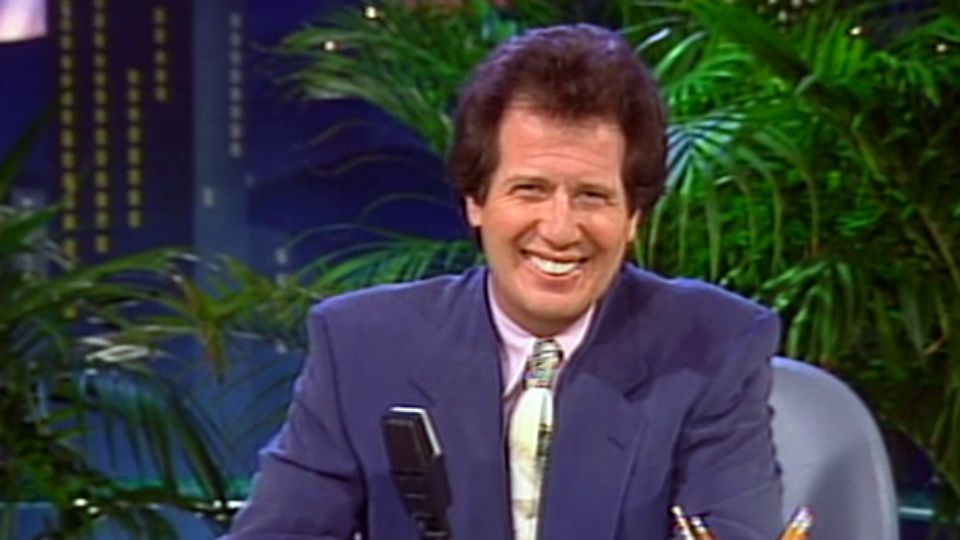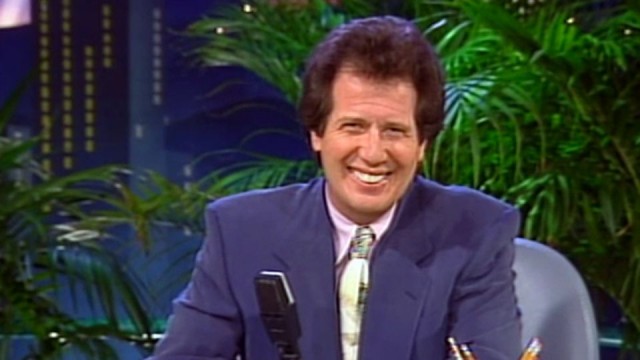So Long Garry Shandling, a Genius Who Pioneered TV Comedy…Twice


Yesterday the comedy world, and entertainment world at large, suffered another divesting blow with the far too early loss of Garry Shandling. It would be hard for audiences with even a general knowledge of comedy not to feel the blow. Regardless of your own familiarity with the man, everyone knows that Garry Shandling changed the face of TV comedy with his two now iconic cult classics. And in this new “golden age” of TV, comedians in front and behind the lens know that without him leading the way, we wouldn’t have a lot of the great comedy we have on TV now. From the independent voices being given free rein to the surreal humor to the deadpan anti-heroes we tolerate for the sake of laughs, Shandling showed so many the way with the surreal, childlike fantasy that was It’s Garry Shandling’s Show in stark contrast to the often brutal but always hilarious satire-parody of The Larry Sander’s Show.
From the moment he stepped center stage, he seemed tailor made for the TV cameras. Deceptively average-guy with a streak of self-deprecation and a slight tilt to the way he saw the rest of the world. His view of the world around him, while like everyone else’s, always had Shandler’s specific lens. He appealed to the misfits that tried to fit in…no wonder Judd Apatow (one of Shandler’s many protégés) paid tribute to him on Freaks and Geeks
No wonder he was the perfect stand-up to get his own TV show. Right alongside Paul Reuben’s Pee-Wee’s Playhouse, Garry Shandling brought some of the most creative, smart, delightfully weird material to TV in 1986. And honestly, the two shows feel like the perfect counterpart to each other, as they both shared something very odd…a childlike joy at the idea of putting on a show. Even the name, It’s Garry Shandling’s Show felt oddly strange to hear. It wasn’t, The Garry Shandling Show like The Danny Thomas Show, The Andy Griffith Show, The Mary Tyler Moore Show, or The Bob Newhart Show. Shandling put “It’s” before his possessive name…like a little kid announcing a show he’s about to put on in the living room. It was like a grown-up version of co-creator’s Alan Zweibel’s sketch with Gilda Radner The Judy Miller Show. Shandling just embraced those childlike powers from an adult perspective.
It felt like this was exactly the show Shandler wanted to make, so just sit back and be entertained. After all, you were coming into his home (literally, that was the show’s structure) so he’d be entertaining you the way he saw fits. He’d break the fourth wall constantly, not just with a joke to the audience but literally stopping the show to walk into the audience or getting in his little electric cart/car to just drive around. He even knew he had that wonderfully weird, catchy theme song. And then there were moments when he’d simply break format all together, like time traveling or having Live Election coverage during an episode. And then there was that wonderful earworm of a theme song.
The show was so playfully strange it’s easy to overlook that for the most part, it really was about nothing. He was a stand-up, playing himself, living in a house with some friends constantly barging in and minor things happening. And three years later, Jerry Seinfeld would take a similar (although straighter forward approach) to the autobiographical show about nothing and found multimillion dollar success on network TV.
According to legend, Shandling could have tried to turn It’s Garry Shandling’s Show into something Network friendly; potentially finding a larger audience and certainly earning more money. But Shandling seemed to really like that idea of making something which was literally “his show” and letting his perfect audience find him. Working with a channel with lower ratings expectations meant to he could do whatever the hell he wanted, and as long as he found that loyal audience, he was safe. So It’s Garry Shandling’s Show went to Showtime…which at that point had only two other multi-season shows on the air…a sitcom called Brothers and a drama called The Paper Chase (which had been a network show saved by the channel). Like those other two shows, Showtime meant freedom do what he wanted, and Shandling shared that joyful freedom with his audiences, enjoying them to join him on this new adventure.
And that cable freedom is the reason when he went on to make The Larry Sanders Show two years later, it could only fit on cable…this time HBO. The ratings were higher than his first show and Larry Sanders Show earned more respect from the Emmys, but that bastion of unusual comedy Shandling promised his loyal fan base remained a key element of the show. And when he was offered network gigs on Late Night and The Late, Late Show (after being a hit guest host for Johnny Carson), he had the clout and wherewithall to know that autonomous comic freedom was worth more than the money and recognition a network hosting job could offer him. And he always seemed to be do exactly what he wanted to be doing.
Although both shows were essentially parodies of TV formulas (talk show and domestic sitcom) Larry Sanders wasn’t as whimsical as It’s Garry Shandling’s Show, showing a kind of acidic tongue most people try to hide. Nearly every character on Larry Sanders Show could be (and frequently were) jerks to one another, allowing the stress of working on a daily talk show to destroy friendships and relationship. The writers were back stabbers, the sidekick a narcissist, the producer a hot-head. Even the celebrity guests couldn’t escape with their dignity in check…which was part of the reason people loved it. No one was ostracized for showing such a negative side of themselves on Larry Sanders, it was all part of the fun. And like Shandling had done before, his pact with the audience extended to guests…his audiences were smart enough to get the joke, so come play with us.
It didn’t hurt that Shandling that Larry Sanders often came across as the absolute worst person among this poorly behaved group. His character ego was always out of check, he struggled with every single relationship, and was under constant stress over how people “perceived him” even if the opinion mirrored his behavior. He was at once destroyed by the pressures of fame and completely addicted to it. And yet, as unlikeable as Larry Sandler could get, audience always found his rather lovable and empathetic. He wore all his insecurities on his sleeve and showed a boyish need for approval. He was like a subtler take on Dabney Coleman’s series Buffalo Bill (another show from Shandling’s longtime producer/agent Bernie Brillstein and Sandler co-creator Dennis Klein).
And it didn’t hurt that Shandling (who was dramatically underappreciated as an actor) had a keen understanding that to play a character that is unlikable, you need to have empathy and acceptance of him. Shandler has insecurities and admitted to even occasionally behaving badly because of the day to day pressures of making the show…and yes, he could be gruff when being pushed to do or talk when he clearly wasn’t in the mood (just watch Ricky Gervais struggle when meeting him).
But Shandling also had so much goodness that he could wrap around Larry Sander. He was generous to a fault with his friends, candid and wise in interviews, and almost godfatherly to the younger generation of alternative comics that emerged around him, many of whom wanted to follow in his footsteps. And those qualities also came through as Larry Sandler, his decency and desire “to be good.” Although after Larry Sander’s ended Shandling worked on screen only sporadically, he never dropped out of comedy…and reached so many younger comics who came later, pointing them out amounts means you just need to glance at twitter today.
Even if they weren’t personally connected to Shandling, it would be hard to imagine many of cable’s greatest comedies not existing without Shandler coming before and showing how different and special TV really can be. The Office and Extras; the list of innovative shows that owe a debt of gratitude to Garry Shandling goes on and on. We were lucky to have had his talent and mind, and his loss is hard to accept today.
So long, to a genius.
Latest posts by Lesley Coffin (see all)
- Can a Cartoon be a Trojan horse in Politics? Our Cartoon President Uses Lightness to Deliver Truth - June 11, 2019
- Tom Rhodes New 3 Hour Album Covers Something Pretty Big: The World - March 25, 2019
- Ari Shaffir’s Renamed Storyteller Show: An Oral History - February 19, 2019
